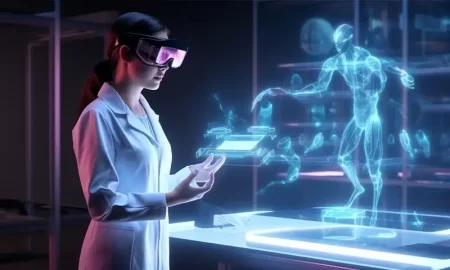Artificial Intelligence (AI) has emerged as a groundbreaking technology that is revolutionizing various industries and transforming the way we live and work. With its ability to mimic human intelligence and perform tasks that traditionally required human involvement, AI has become a topic of great interest and curiosity. In this article, we will delve into the impacts and possibilities presented by the rise of artificial intelligence.
Understanding Artificial Intelligence
Artificial Intelligence refers to the development of computer systems that can perform tasks that typically require human intelligence. These tasks include speech recognition, decision-making, problem-solving, learning, and more. AI systems are designed to analyze vast amounts of data, recognize patterns, and make informed decisions or recommendations based on that information.
AI in Everyday Life
AI has already become an integral part of our daily lives, even if we may not always be aware of it. Virtual personal assistants like Siri and Alexa use AI algorithms to understand and respond to our voice commands. AI-powered recommendation systems suggest movies, products, and content tailored to our preferences. Smart home devices automate tasks and enhance our convenience. AI is also employed in healthcare for medical imaging analysis, drug discovery, and personalized medicine.
AI in Business and Industry
The business world has been quick to embrace AI technology. Companies are leveraging AI to optimize processes, increase efficiency, and gain a competitive edge. AI-powered chatbots provide instant customer support, improving user experience. Predictive analytics algorithms help businesses make data-driven decisions and anticipate market trends. AI algorithms can also automate repetitive tasks, freeing up employees’ time to focus on more complex and strategic endeavors.
AI and Job Automation
The rise of AI has sparked debates about its impact on the job market. While AI can automate certain tasks, leading to job displacement in some industries, it also opens up new opportunities and creates new job roles. The key lies in reskilling and upskilling the workforce to adapt to the changing demands of the job market. AI can take over mundane and repetitive tasks, allowing humans to focus on tasks that require creativity, critical thinking, and emotional intelligence.
Ethical Considerations
As AI becomes more sophisticated and pervasive, ethical considerations come to the forefront. Questions regarding data privacy, algorithmic bias, and AI’s potential to infringe on human rights need to be addressed. It is crucial to establish ethical frameworks and regulations that guide the development and deployment of AI systems. Ensuring transparency, fairness, and accountability in AI algorithms is essential for building trust and mitigating potential risks.
AI in Healthcare
The healthcare industry stands to benefit greatly from AI advancements. AI-powered diagnostic tools can analyze medical images, detect abnormalities, and assist in early disease detection. Virtual healthcare assistants can provide personalized healthcare guidance and monitor patients remotely. AI algorithms can also help streamline administrative tasks, improve efficiency, and reduce medical errors.
AI in Education
AI has the potential to revolutionize education by personalizing learning experiences and enhancing educational outcomes. Intelligent tutoring systems can adapt to individual student needs, providing tailored instruction and support. AI can also analyze vast amounts of educational data to identify patterns and optimize curriculum design. Virtual reality and augmented reality technologies powered by AI can create immersive and interactive learning environments.
AI in Transportation
The transportation sector is undergoing significant transformations due to AI integration. Self-driving cars and autonomous vehicles powered by AI algorithms have the potential to revolutionize transportation, improving safety and efficiency. AI can optimize traffic management systems, reduce congestion, and enhance logistics operations. Additionally, AI algorithms can analyze data to predict maintenance needs, minimizing downtime and increasing reliability.
AI and Creativity
Contrary to popular belief, AI is not limited to analytical tasks and problem-solving. It has also demonstrated its ability to foster creativity. AI algorithms can generate music, artwork, and even creative writing. While the debate on AI’s authenticity in creative endeavors continues, it presents an exciting prospect of collaboration between humans and machines, pushing the boundaries of what is possible.
Conclusion
The rise of artificial intelligence has had a profound impact on various aspects of our lives. From everyday tasks to complex industries, AI has shown its potential to revolutionize and enhance our capabilities. However, it is important to consider the ethical implications and ensure responsible development and deployment of AI systems. By embracing AI’s possibilities and addressing its challenges, we can harness its power to shape a better future.
In conclusion, artificial intelligence continues to evolve and reshape our world, offering a plethora of impacts and possibilities across numerous domains. Its integration into various sectors has demonstrated the potential for improved efficiency, personalized experiences, and enhanced decision-making. As we navigate this technological revolution, it is essential to strike a balance between innovation and ethical considerations to unlock the full potential of artificial intelligence for the betterment of society.












